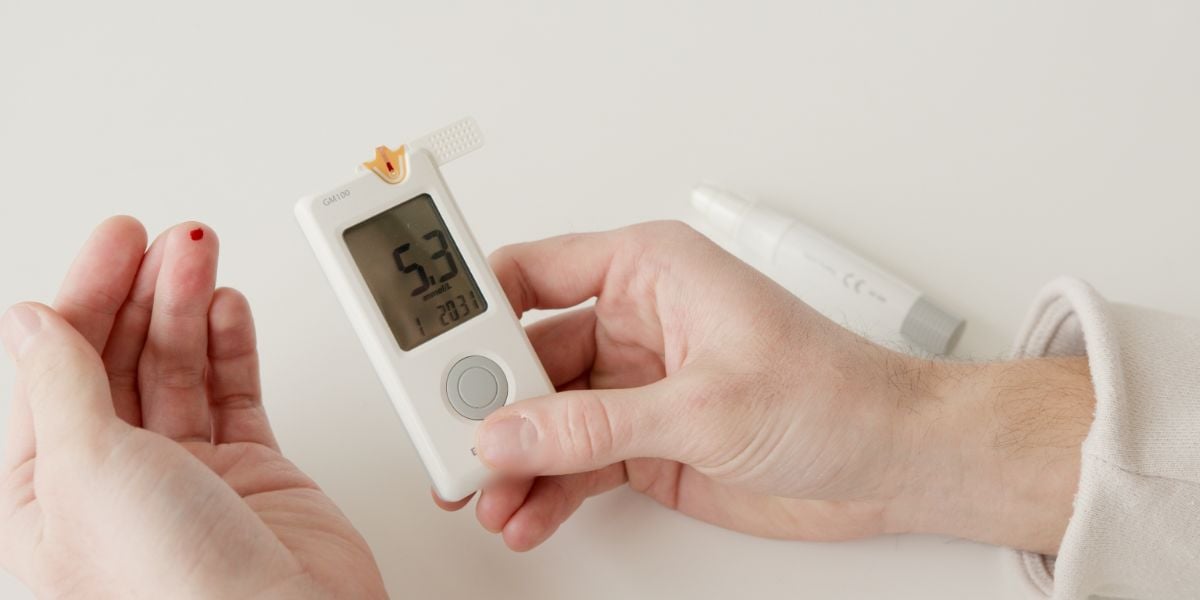Balancing blood sugar is the compass guiding one’s path to holistic health, an imperative journey for those navigating diabetes or teetering on the edge of its potential grasp; vigilant monitoring illuminates the roadmap, empowering individuals to sculpt mindful lifestyles and enabling timely interventions to thwart complications. In this comprehensive guide, we will delve into the importance of monitoring blood sugar, the tools available for tracking levels, and practical tips to manage and interpret the results effectively.
Section 1: Understanding Blood Sugar Levels
1.1 The Significance of Blood Sugar Monitoring:
Explore why monitoring blood sugar is vital for individuals with diabetes and those at risk.
Discuss the link between blood sugar levels and overall health.
Highlight the impact of uncontrolled blood sugar on organs and long-term complications.

1.2 Target Blood Sugar Ranges:
Provide an overview of target blood sugar ranges for fasting, pre-meal, and post-meal scenarios.
Discuss how these ranges vary for individuals with type 1 and type 2 diabetes.
Section 2: Tools for Monitoring Blood Sugar
2.1 Blood Glucose Meters:
Explain how blood glucose meters work and their role in daily monitoring.
Compare different models and discuss key features to consider when selecting a meter.
2.2 Continuous Glucose Monitoring (CGM) Systems:
Explore the benefits of CGM systems for real-time blood sugar tracking.
Discuss the technology behind CGM and its impact on lifestyle and treatment decisions.
2.3 Haemoglobin A1c Testing:
Explain the significance of A1c testing in assessing long-term blood sugar control.
Discuss how A1c results complement regular blood sugar monitoring.
Section 3: How to Monitor Blood Sugar Levels Effectively

3.1 Establishing a Monitoring Routine:
Transform your health journey with a seamless integration of blood sugar monitoring into your daily routine by adopting mindful habits, from setting consistent testing times to utilizing digital tools for tracking and analysing your glucose levels. Offer tips for consistency and adherence to monitoring schedules.
3.2 Interpreting Blood Sugar Readings:
Explain how to interpret various blood sugar readings.
Discuss the significance of patterns and trends in blood sugar levels.
3.3 Recording and Analysing Results:
Provide guidance on maintaining a blood sugar log.
Discuss the importance of reviewing and analyzing trends for better management.
Section 4: Lifestyle Strategies for Blood Sugar Control
4.1 Balanced Nutrition:
Explore the role of a well-balanced diet in maintaining stable blood sugar levels.
Provide practical tips on meal planning and portion control.
4.2 Regular Physical Activity:
Discuss the benefits of exercise in blood sugar management.
Provide suitable exercise routines for different fitness levels.
4.3 Stress Management:
Examine the impact of stress on blood sugar levels.
Offer stress-reducing techniques such as meditation and mindfulness.
Section 5: Seeking Professional Guidance
5.1 Importance of Regular Check-ups:
Emphasize the role of healthcare professionals in monitoring blood sugar.
Discuss the frequency of check-ups and necessary tests.
5.2 Collaborating with Healthcare Providers:
Highlight the significance of open communication with healthcare teams.
Discuss how healthcare professionals can assist in optimizing blood sugar control.
Conclusion:
Monitoring blood sugar levels is a proactive and empowering approach to diabetes management. In the symphony of well-being, orchestrating a harmonious blend of consistent vigilance, adept tools, and proactive lifestyle choices empowers individuals to steer the helm of their health, navigating away from the reefs of complications linked to the ebb and flow of blood sugar levels; the synergy of self-monitoring and healthcare collaboration composing a virtuoso performance toward enduring triumph in blood sugar mastery.
Read More:-Top 10 Yoga Tips Asanas For Better Eyesight
Read More:- The Top 7 Health Insurance Plans for Families
